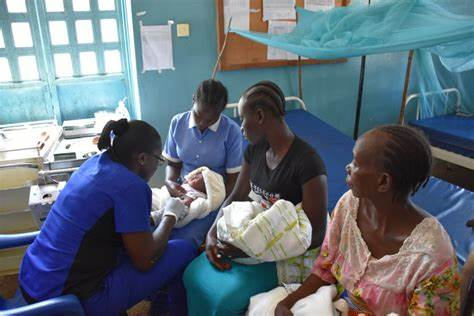Our Terms & Conditions | Our Privacy Policy
Activist demands more allocation for health, education sectors – The City Review South Sudan
Satimo lamented that the Abuja Declaration prioritized the Ministry of Health and Education to allocate the fiscal budget at 15 percent.
By James Chatim
A civil society activist has voiced concerns over what he called a lack of seriousness by the government towards service delivery to the citizens despite huge support from the partners.
Speaking during the public hearing on the draft 2024/2025 fiscal year budget yesterday, Luwate Satimo Joel said the proposed budget for the health and education sectors is not enough for the two vital institutions.
Satimo lamented that the Abuja Declaration prioritized the Ministry of Health and Education to allocate the fiscal budget at 15 percent.
According to the Abuja Declaration of 2001, African Union countries should at least allocate 15 percent of their annual budget to health, the same to the education sector.
“I want to ask the question, why education sector and health sector are joined together? Those sectors were independent when you look at them in the previous. But when you look at the current budget, you realize that health is only given 1.3%. And as my colleague, Edmund Yakani said, according to the Abuja declaration, health is supposed to be given 15%,” Satimo said.
“Likewise, the education sector, which is supposed to be given as well, 15%. So that tells us exactly that we have a big gap in terms of offering services to the citizens of this country.
Now, the question is, how much was the contribution of development partners, which is not reflected in your findings? Of those committees that we are tasked to review, how much was the contribution of the development partners towards the budget 2023-2024 that was not reflected? Because we very well know that most of our schools and hospitals are supported by some UN agencies,” he added.
Satimo stated that the current fiscal year budget is not enough and the institutions in charge of service delivery are spending out of legal framework.
“The spending agencies are spending outside the legal frameworks that we have. And the answer is by our lawmakers and some of these ministries. The current year 2024-2025 prompt budget is very insufficient,” Satimo stated.
South Sudan’s budget for education and health is low compared to international targets and other sectors of the economy.
In 2022/23, the government allocated up to 17% of the national budget to education, which is an increase from the average of less than 6% between 2010 and 2020. However, spending as a proportion of GDP is still below international targets and is the lowest in East Africa.
While Sudan’s health budget is 2% of the national budget, which is low compared to international targets.
Other social sectors are severely underfunded, with no funding for child protection, social protection, or water, sanitation, and hygiene (WASH) services.
South Sudan also relies heavily on Official Development Assistance (ODA) to deliver basic social services.
Utilities
According to the Abuja Declaration of 2001, African Union countries should at least allocate 15 percent of their annual budget to health, the same to the education sector.
Images are for reference only.Images and contents gathered automatic from google or 3rd party sources.All rights on the images and contents are with their legal original owners.



Comments are closed.